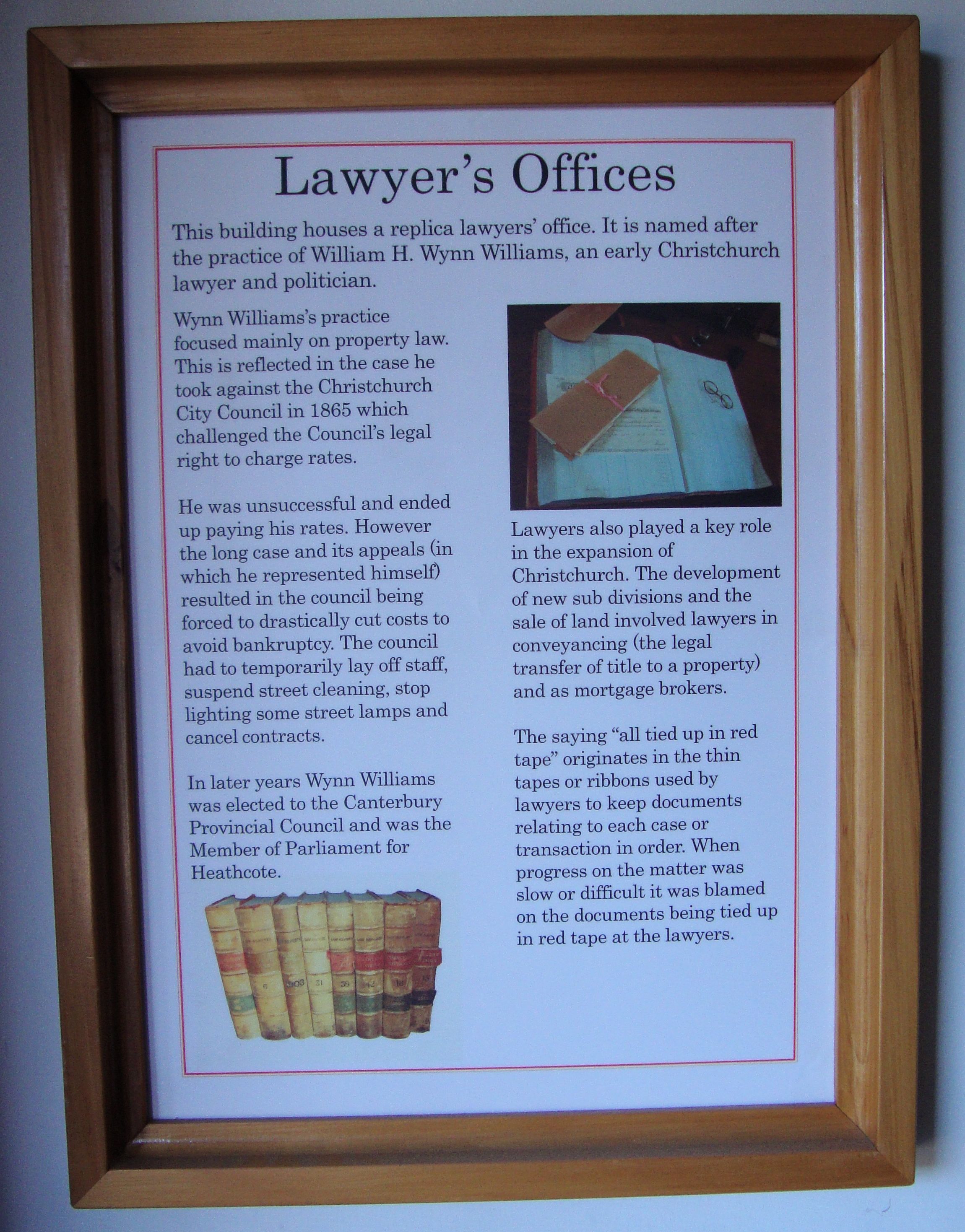|
Christchurch West
Christchurch West was a parliamentary electorate in the city of Christchurch, New Zealand from 1871 for the 5th Parliament, and it existed until 1875. Population centres The 1870 electoral redistribution was undertaken by a parliamentary select committee based on population data from the 1867 New Zealand census. Eight sub-committees were formed, with two members each making decisions for their own province; thus members set their own electorate boundaries. The number of electorates was increased from 61 to 72, and Christchurch West and were two of the new electorates. These electorates were concentrated on the central city and inner suburbs, and Colombo Street formed much of the boundary between them. Both of these electorates were abolished after one parliamentary term in the 1875 electoral redistribution, and replaced by the three-member electorate. History The electorate was created for the 1871 general election, and it was contested by Edward Richardson and Henry Wynn-Wi ... [...More Info...] [...Related Items...] OR: [Wikipedia] [Google] [Baidu] |
New Zealand Electorates
An electorate or electoral district ( mi, rohe pōti) is a geographical constituency used for electing a member () to the New Zealand Parliament. The size of electorates is determined such that all electorates have approximately the same population. Before 1996, all MPs were directly chosen for office by the voters of an electorate. In New Zealand's electoral system, 72 of the usually 120 seats in Parliament are filled by electorate members, with the remainder being filled from party lists in order to achieve proportional representation among parties. The 72 electorates are made up from 65 general and seven Māori electorates. The number of electorates increases periodically in line with national population growth; the number was increased from 71 to 72 starting at the 2020 general election. Terminology The Electoral Act 1993 refers to electorates as "electoral districts". Electorates are informally referred to as "seats", but technically the term '' seat'' refers to an electe ... [...More Info...] [...Related Items...] OR: [Wikipedia] [Google] [Baidu] |
Henry Wynn-Williams
William Henry Wynn-Williams (1828 – 27 October 1913) was a 19th-century Member of Parliament from Canterbury, New Zealand. He was a prominent lawyer in Christchurch. Early life Wynn-Williams was born in August 1828 in Llangar, Conwy County Borough, North Wales. His father was the rector Peter Williams, and his mother was Lydia Sophia Price. One of his brothers was Watkin Williams. The birth dates for William and Charles are uncertain, as they were apparently born in August and September 1828, respectively *Parish registers of Llangar show Watkin baptised in Sept 1827 & Henry in Sept 1828. His brother Charles studied medicine initially, but changed to a law degree. William was educated in preparation for joining the Indian army, but then also studied law. After practising in Wales for two years, William emigrated to New Zealand, arriving in Wellington in 1856. He worked on farms in the South Island and settled in Christchurch in 1860. Professional career He began practising ... [...More Info...] [...Related Items...] OR: [Wikipedia] [Google] [Baidu] |
Historical Electorates Of New Zealand
History (derived ) is the systematic study and the documentation of the human activity. The time period of event before the invention of writing systems is considered prehistory. "History" is an umbrella term comprising past events as well as the memory, discovery, collection, organization, presentation, and interpretation of these events. Historians seek knowledge of the past using historical sources such as written documents, oral accounts, art and material artifacts, and ecological markers. History is not complete and still has debatable mysteries. History is also an academic discipline which uses narrative to describe, examine, question, and analyze past events, and investigate their patterns of cause and effect. Historians often debate which narrative best explains an event, as well as the significance of different causes and effects. Historians also debate the nature of history as an end in itself, as well as its usefulness to give perspective on the problems of the p ... [...More Info...] [...Related Items...] OR: [Wikipedia] [Google] [Baidu] |
1875 Disestablishments In New Zealand
Events January–March * January 1 – The Midland Railway of England abolishes the Second Class passenger category, leaving First Class and Third Class. Other British railway companies follow Midland's lead during the rest of the year (Third Class is renamed Second Class in 1956). * January 5 – The Palais Garnier, one of the most famous opera houses in the world, is inaugurated in Paris. * January 12 – Guangxu becomes the 11th Qing Dynasty Emperor of China at the age of 3, in succession to his cousin. * January 14 – The newly proclaimed King Alfonso XII of Spain (Queen Isabella II's son) arrives in Spain to restore the monarchy during the Third Carlist War. * February 3 – Third Carlist War – Battle of Lácar: Carlist commander Torcuato Mendíri secures a brilliant victory, when he surprises and routs a Government force under General Enrique Bargés at Lácar, east of Estella, nearly capturing newly crowned King Alfonso XII. The Carlis ... [...More Info...] [...Related Items...] OR: [Wikipedia] [Google] [Baidu] |

.jpg)
